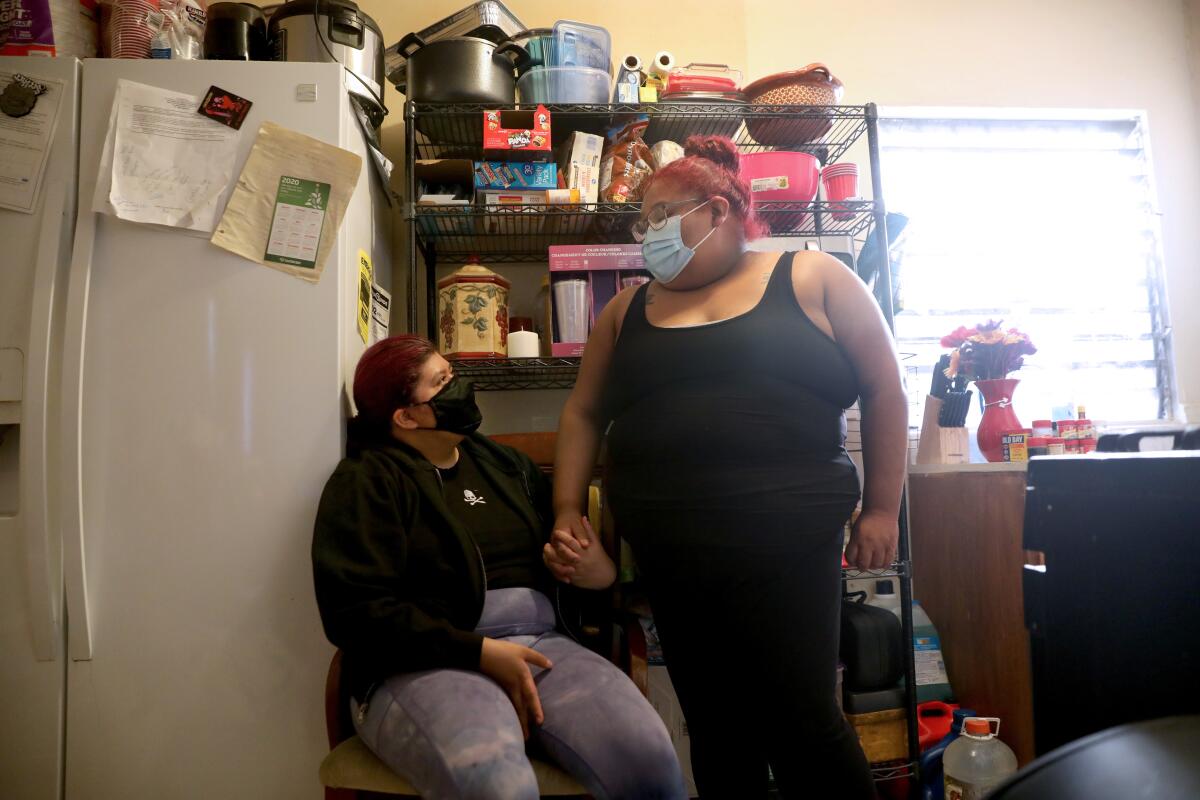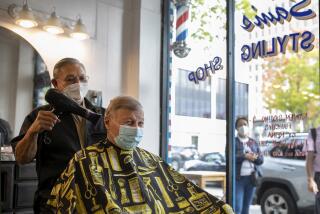Letters to the Editor: What a pandemic is like for people who cannot escape it

To the editor: I received my first dose of the COVID-19 vaccine recently and I cried. In fact, if this letter had been submitted to The Times by U.S. mail, there would be tear stains on it. (“When coronavirus invaded their tiny apartment, children desperately tried to protect dad,” Jan. 29)
I am lucky. I have been able to isolate pretty well and was not at a high risk of getting the virus. Nevertheless, when the opportunity to get the vaccine arose (I am older than 65), I took it. I have no regrets for having taken it under the current circumstances, but I wish the circumstances were different.
If they had been different and it were possible to give my place in line to Jose Guadalupe Zubia — the patriarch of a large family who sadly died last November — I would have done so gladly.
The story of him and his family was one of the most moving pieces I have ever read in The Times. It vividly presented the tragedy of this pandemic for those who are simply unable to escape it.
Larry Macedo, West Hills
..
To the editor: Americans were horrified and demanded strong action when the 9/11 terrorist attacks claimed nearly 3,000 lives. Politicians responded with the politics of fear to make Americans afraid of Middle Eastern terrorists, and they started two wars.
Now, only a minority of Americans are fearful of contracting COVID-19.
In spite of daily death tolls of 4,000 or more, hardly a day goes by that we don’t read or hear about Americans — including members of Congress — who refuse to wear masks or argue that COVID-19 isn’t much of a problem. However, in 10 months there have been more than 25 million infections in this country, and more Americans have died from COVID-19 than were killed in World War II.
Part of the problem is our language. An invisible “virus” hardly seems threatening compared to, say, a bombing, an airplane crash or a military battle.
So one wonders, would people pay more attention if we were invaded by a foreign foe and were suffering 4,000 deaths a day like we are now? Can you imagine the headlines and calls for action if multiple 747 jetliners each with hundreds of passengers crashed daily?
Perhaps we need new ways to move virus deniers toward taking basic precautions.
David Altheide, Solana Beach
The writer, a professor emeritus at Arizona State University, is author of the book “Terrorism and the Politics of Fear.”
More to Read
A cure for the common opinion
Get thought-provoking perspectives with our weekly newsletter.
You may occasionally receive promotional content from the Los Angeles Times.










